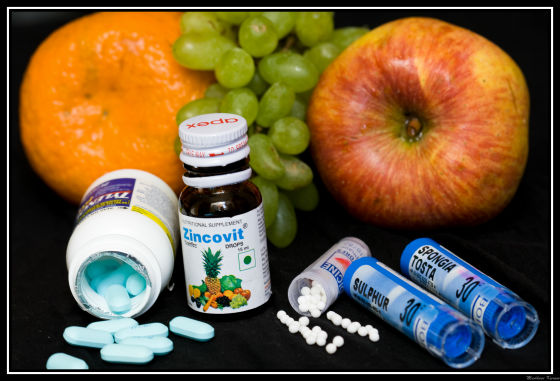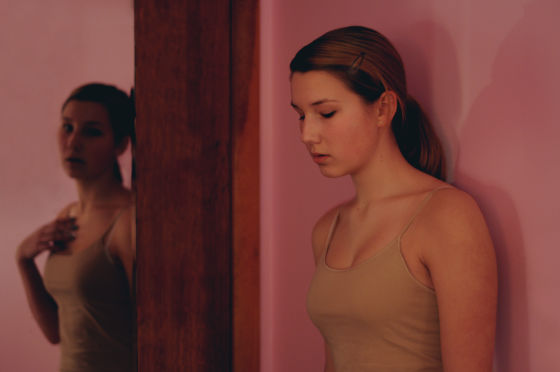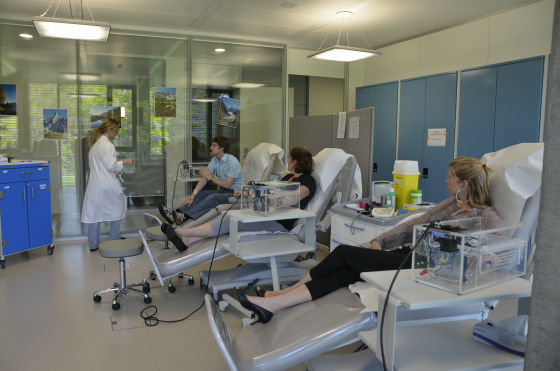What is surprising result found from clinical trials of depressed patients by female menopause?

ByMax Boschini
Many women have irregular menstrual cycles beyond the age of 40, and will reach menopause at around the age of 50. After menopause, the estrogen of the female hormone secreted from the ovary is almost eliminated, increasing the possibility of causing menopausal disorder. Furthermore, there are cases where you suffer from mental illnesses such as depression as well as physical problems as a result of menopause. A research team of the National Institute of Technology of Mexico conducted a clinical trial to investigate effective treatment for depression by menopause, surprising results were revealed.
PLOS ONE: Individualized Homeopathic Treatment and Fluoxetine for Moderate to Severe Depression in Peri- and Postmenopausal Women (HOMDEP-MENOP Study): A Randomized, Double-Dummy, Double-Blind, Placebo-Controlled Trial
http://journals.plos.org/plosone/article?id=10.1371/journal.pone.0118440
One of the treatments used for depressionHomeopathic remediesThere is something called. This is based on the idea that medical treatment systemized by German medical doctor Samuel Hahneman can "cure diseases and symptoms using drugs and" things "that can cause certain diseases and symptoms" Things that are. One such example is to administer a medicine including a substance produced from coffee containing caffeine to a patient with insomnia, a substance considered to cause a symptom (in this case, caffeine ) Is administered to patients only in a small amount to stimulate the patient's natural healing power to aim for complete cure. The medicine used at this time is "RemedyIt is called.

ByBindaas Madhavi
Homeopathic therapy may be applied to people suffering from depression in the peri-menopausal period and postmenopausal, but the clinical trials on its efficacy are currently in short supply. Based on these conditions, the research team of the National Institute of Technology of Mexico conducted a clinical trial to examine the safety and efficacy of homeopathy for depression patients in the peri-menopausal period and menopause.
Clinical trials include homeopathic remedies using remedies and pharmacologically inactive fake drugsplacebo, And a method called "3 group study" was used to compare effects using common antidepressants. To scientifically evaluate the effectiveness of a medicine, it is necessary to compare the case of administration of medicine and the case of not administering medicine. In short, observing homeopathic therapy alone is insufficient to obtain a trustworthy result, so it is necessary to compare it with the case of receiving placebo.
The research team collected 534 subjects suffering from depression in the peri-menopausal period and postmenopausal "1: remedy of homeopathic therapy and placebo of antidepressants" "2: placebo and antidepressants of remedies" "3: remedies and Placebo of antidepressant "was administered, and the administration and the examination of the medicine were done over 6 weeks.

BySend me adrift.
After a clinical trial conducted over 6 weeksHamilton Depression Rating Scale,Beck's depression study table (BDI), The Greek depression evaluation scale (Greene Climacteric Scale), a test to investigate the measure of depression, and furthermore the data on efficacy by administration of each medicineBonferroni methodAnalyzed by a post hoc test called.
The lower the score, the lower the degree of depression Hamilton depression assessment scale results showed that group 1 who received remedy and placebo for antidepressants was given group 2 of remedy and antidepressant placebo It turned out that it was as low as 5 points. In addition, the response rate indicating that the symptoms of depression decreased more than half from the original bad condition was 54%. In other words, 54% of Group 1 subjects said that "the original symptoms have decreased more than half". In addition, the remission rate showing that the symptoms of the disease almost disappeared was 15.9%, and about 16% of people became close to complete recovery. However, there was no significant difference in remission rate among the three groups, but rather that the difference was remarkable in the response rate.
Also, in the Beck depression study table, there was no significant difference between the three groups, and Group 1 was the most efficacious in the Greene depression assessment scale.

ByNestlé
Based on the above analysis results, the research team concludes that "Homeopathy is effective and safe for the treatment of people suffering from depression in periparound menopause and postmenopausal." On the other hand, remission rates were significantly higher in Group 1, where substantially only remedies for homeopathic therapy were administered, Group 2 in which only antidepressant was administered substantially, and Group 3 in which only placebo was administered It is said that it was an interesting result that it was almost the same.
On the other hand, it is a fact that there is an opinion that doubts the result of this research. While serving as a physicist at Twente University, he also contributes articles to Ars Technica, IT related mediaChris Lee"The paper published by the National University of Technology of Mexico contains many problems, and PLOS One that posted this paper tends to pass through papers that have to be said to be childish like this time.Plos ONE's I agree with the approach that seeks ideal, but only when the method used in that research is valid is to publish the paper that uses homeopathy as a subject of research.When PLOS One posted the paper I think it is a failure "Voice to point out defects in reliabilityThere is also.
Related Posts:
in Science, Posted by darkhorse_log







